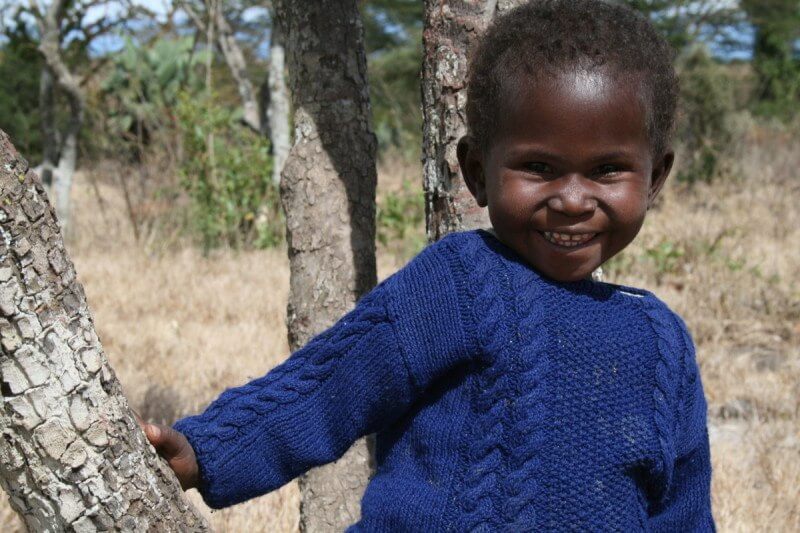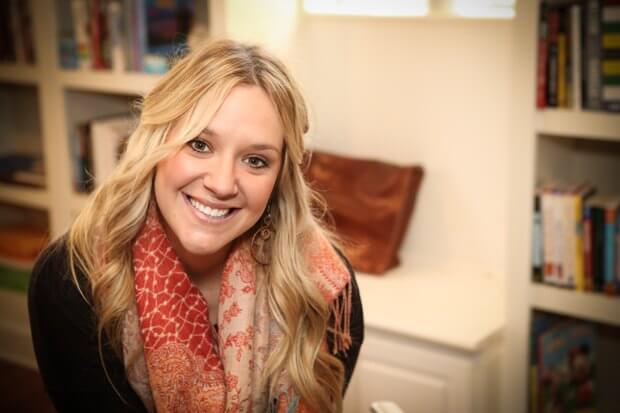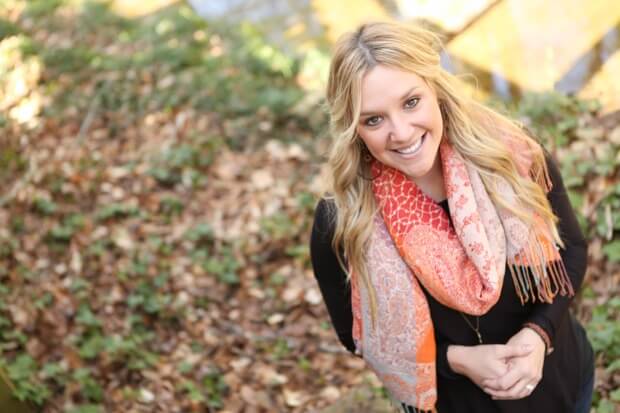As our friends at Kula Project prepare this week for their 2nd annual #ForTheFarmer event, we share with you again their inspiring story. On Thursday, August 14th, over a dozen of Atlanta’s top restaurants donate 20% of their sales to invest in Kula Project farms in Rwanda, helping to push forward the mission of this inspiring young woman.
Kula Project co-founder and Executive Director Sarah Buchanan grew up just south of downtown Atlanta in Fayetteville, GA. When she finished high school, she enrolled at Georgia State University as a pre-law student, excelling in her classes and assuredly following a “career path.” Then she saw the Daraja Children’s Choir perform at her mother’s church, and she felt moved to try a mission trip to Africa — a trip that would forever alter her life’s vision. Her heart burned with new purpose, her soul felt a calling, and her mind refocused on learning what she could do to “be the change.” By 2012, only a few years after graduating with a degree in international development, Sarah’s vision became reality. Kula Project was born.

When did you first become interested in serving communities in Africa?
When I traveled to Kenya in 2009 with 410 Bridge (a Christian missions organization). I was working with an incredible dentist, just holding a flashlight, but that simple task changed everything for me. Once you see it, once you see real poverty, it’s all over. You have seen too much to do nothing.
How did you decide that farming would be how you could help?
After a lot of travel throughout many developing countries, I saw the impact of agriculture. In fact, the moment I decided to work in agriculture is very vivid. I traveled back to Kenya in 2010, to the same place I had been in 2009. I recognized a little girl I had seen the year before, and she was wearing the same blue sweater she had on the year before. She was just over 1 year old in 2009, so I didn’t understand why she was still the same size. I asked her mother how things were going, and she shook her head and said: “We are suffering a great drought. There is no food from our farm. She is starving.” I hated it. I hated that this little girl could not eat, but I knew the only way to sustainably fix this problem was to equip her parents to do it.

Tell us exactly what the Kula Project does.
We invest in small-scale farmers to create sustainable communities. In the developing world, more than eight of 10 people you meet will depend on a small farm for food and income, so we work with them to help lift their communities out of poverty. We work with local experts to identify the major problems on the individual farms, plan the best possible solution, then work with local companies and the farmers to implement the solution, whether that be education on better planting techniques and the latest technologies, access to a fair-trade market, irrigation, access to seeds and organic fertilizer, etc.
Did you grow up on a farm? How did you learn the techniques you’re teaching Kula farmers?
I did not grow up on a farm, and I actually don’t teach the farmers, either. We believe the best way to solve the problems is through the local experts who live day in and day out around them, so we hire locals to work alongside our team and our farmers to develop the best possible solutions. I can grow basil like you’ve never seen, but I’m in no position to tell a Rwandan farmer how to grow coffee or bananas. But there are some really smart Rwandans who can. Plus, our farmers can learn in their own language and are able to seek advice from these experts long after we are gone. An added bonus is that we get to give an expert a job.
What does “kula” mean, and why did you choose it for the name of your project?
“Kula” is the Swahili word for “to eat,” and Swahili is a language widely spoken in East Africa. It also means “community” in Sanskrit (which I learned from my classes).
What’s been the biggest challenge in developing the foundation?
Patience. When you work with farmers, you are on Mother Earth’s schedule, not your own. On top of that, it takes a while to see if your program is even working because things have to grow! There is no instant gratification in what we do. True, lasting development takes a lot of time and thus a lot of patience, which is definitely something I’ve had to learn.
What have you learned about yourself along this journey?
That I am pretty tenacious. Tenacity has never really been a word I used to describe my assets, but I guess when you figure out your true calling, you want to fight for it. In this case, I fight for our farmers. I know them now, so I have no problem emailing someone 20 times to get them to take my meeting.
Who are your mentors, and what advice have you been given that has really stuck?
I have mentors across many outlets. Some of them I know, and some of them I don’t. One told me, “Nothing is invented and perfected at the same time.” And while I never had the honor of meeting him, Nelson Mandela is a mentor of mine. In Long Walk to Freedom, he talks about doing every job, every small and simple task as if it is the most important, world-changing thing you could possibly do. I remind myself of this when I am doing all the administrative work that I didn’t realize I was signing up for when I decided to start Kula. Everything you do matters, so do it well.

What do you wish Americans could understand about the people you’re helping in Rwanda?
That they have overcome things we cannot even imagine to be true. All of our farmers in Rwanda are survivors of the 1994 genocide, a period of 100 days in which almost a million people were brutally murdered with machetes and clubs, yet they have embraced forgiveness on a level that most Americans can’t even fathom. Now they are asking for a chance. They are ready and more than willing to work, and they want the chance to change their own community.
How do #ForTheFarmer events work and who’s participating this year?
The idea developed while I was working at Table & Main in Roswell. The owner, Ryan Pernice, has been a great friend and supporter of everything Kula Project … he even let me practice a few farming techinques in the drainage ditch behind the restaurant. Last year was the first event. A generous group of restaurants donated 20% of their sales from one day, and we raised over $17K. This year we have 16 restaurants on board, some of the best in the city — Buttermilk Kitchen, Eclipse Di Luna, Etris, Foundation Social Eatery, Harbour House, Land of A Thousand Hills, Max’s Wine Dive, Murphy’s, 1920, The Optimist, Osteria Mattone,The Real Fix Pizzeria, Salt Factory, Serpas, Sweet Auburn Barbecue and Table & Main. It’s pretty incredible to see people embrace the mission with us and help it grow.
What do you do to unwind and relax?
Hot yoga. I love everything about it. I just moved and found Be Yoga, an amazing studio in downtown Marietta.
Do you have any quirky talents or completely irrational fears?
I am terrified of frogs. We were working in Swaziland, and there was a 13-foot python right next to me, and I had no issues. But later that day there was a frog in my boot, and I freaked. I am absolutely terrified of them, and I always have been.
What’s your favorite guilty pleasure or luxury indulgence?
Free People. I love the clothing brand Free People. It’s pretty pricy, so I like to check the sale section on their website, and I love it. Oh, and my lipgloss. I’ve worn the same MAC lipgloss for 11 years now, and it’s $15. I’ll give up pretty much everything else before that.
You travel quite a bit, so give us a few of your best travel “hacks.”
I pack dryer sheets in my suitcase. Working on farms in Africa, you get pretty dirty. We rarely have access to a washer, so rubbing your clothes with the dryer sheets helps. Also, I travel with scrunchies. At night, I wrap my hair in a bun, and my hair dries with creases. Ha! I know that probably sounds weird, but blow dryers use up too much energy and would blow the circuit where we stay, so the scrunchie helps me maintain some sort of femininity. I pack a few solid-color shirts and a bunch of scarves. People don’t really notice you are wearing the same thing every day if you change up the scarf.
What’s in your carry-on bag?
Face wipes, deodorant, my current read, headphones, gum and Goldfish crackers. I love Goldfish.
What’s on your reading list?
The Promise of a Pencil by Adam Braun and The Ask by Laura Fredricks — it teaches how to ask people for money, which is something I’m not so great at doing.
What are your go-to spots in Atlanta when entertaining out-of-town guests?
Dinner at Surin, a Thai restaurant in Virginia-Highlands, then over to Apres-Diem for a drink. I like to hit up the shops on the West Side. There is a Free People over there, plus it is such an awesome spot now, you can always find something to do.
Name three things you can’t live without, other than family, faith and friends.
- My passport.
- My lipgloss.
- My yoga membership. It keeps me sane.

Sarah, you are a true inspiration and we thank you so much for sharing your vision with us. For more information on the Kula Project, visit kulaproject.org and look for events labeled #forthefarmer, which donate a portion of proceeds to Kula Project.

Thank you, Cat Maxwell, for your beautiful FACES photography.























